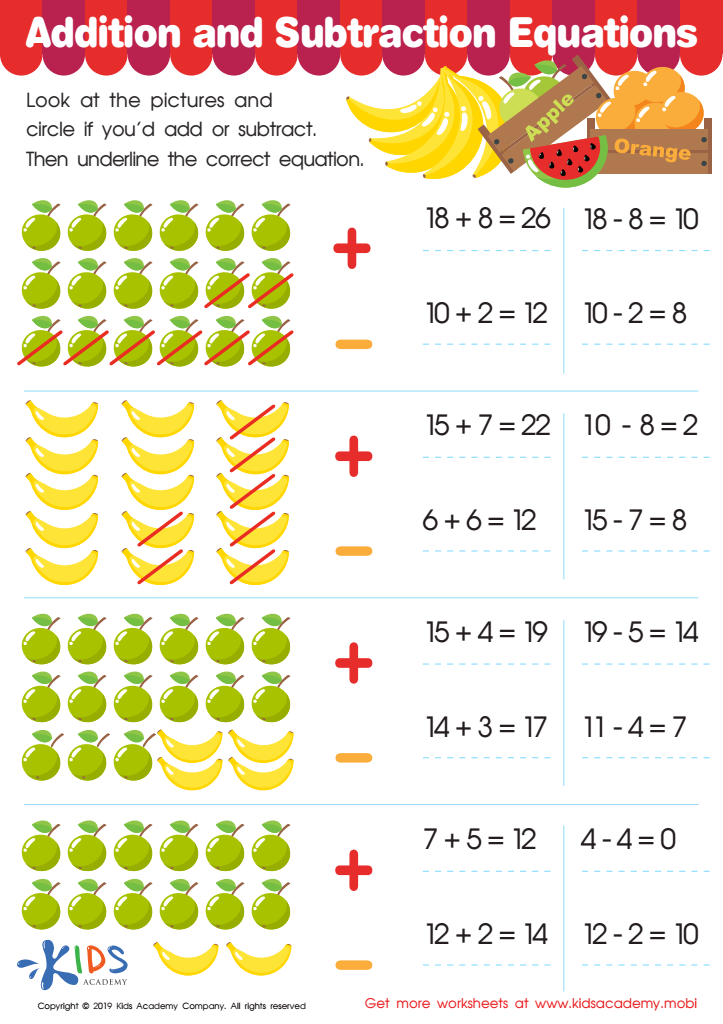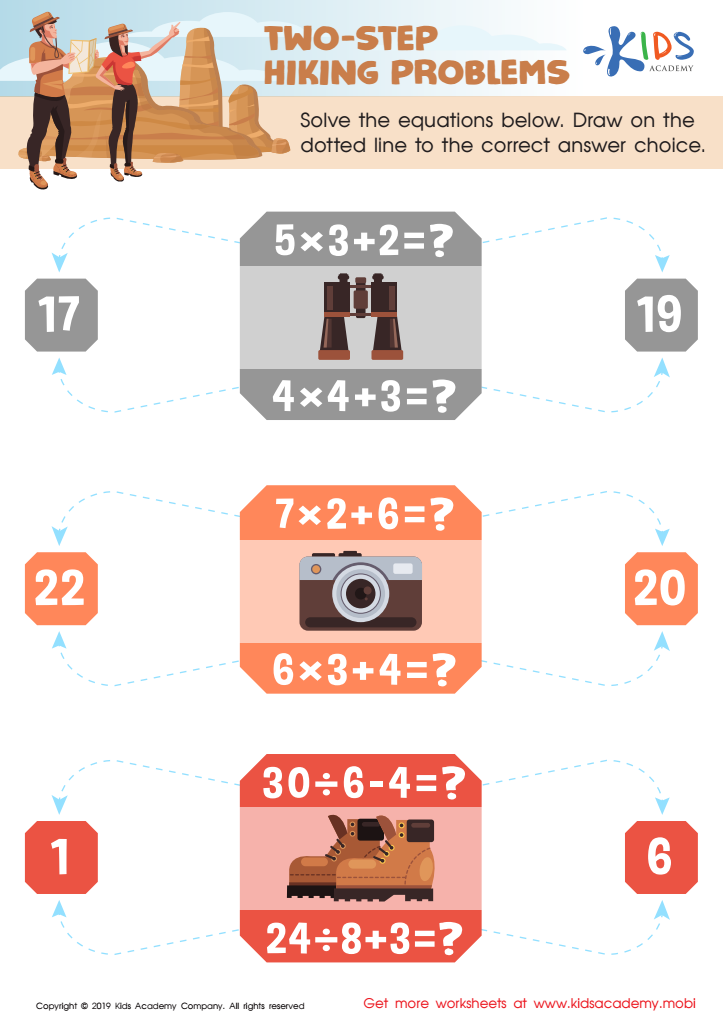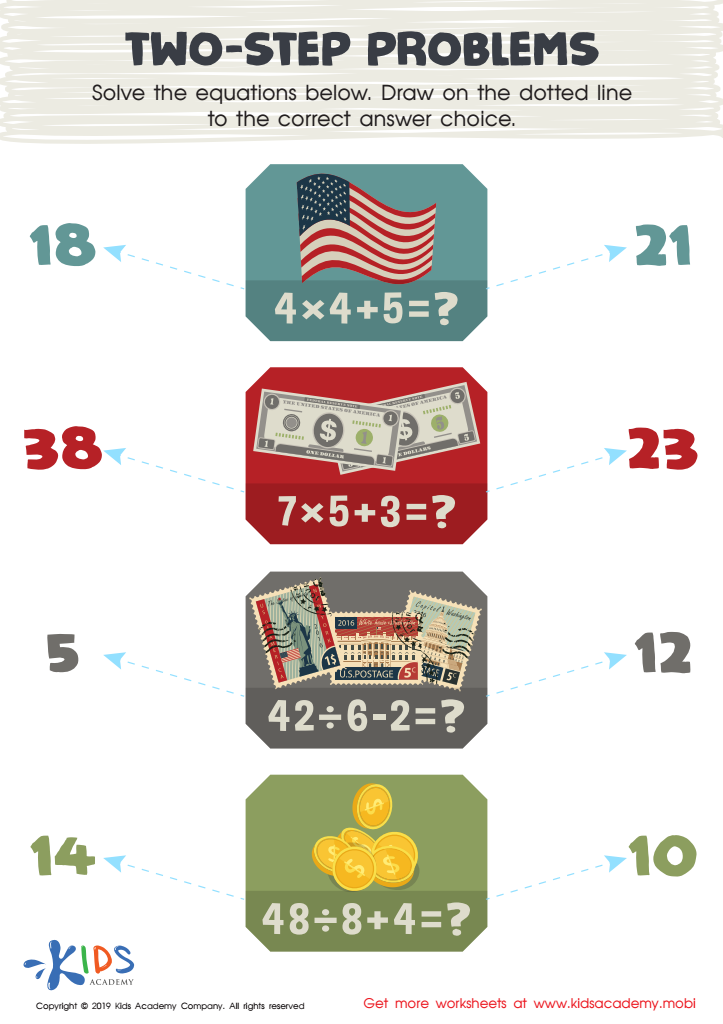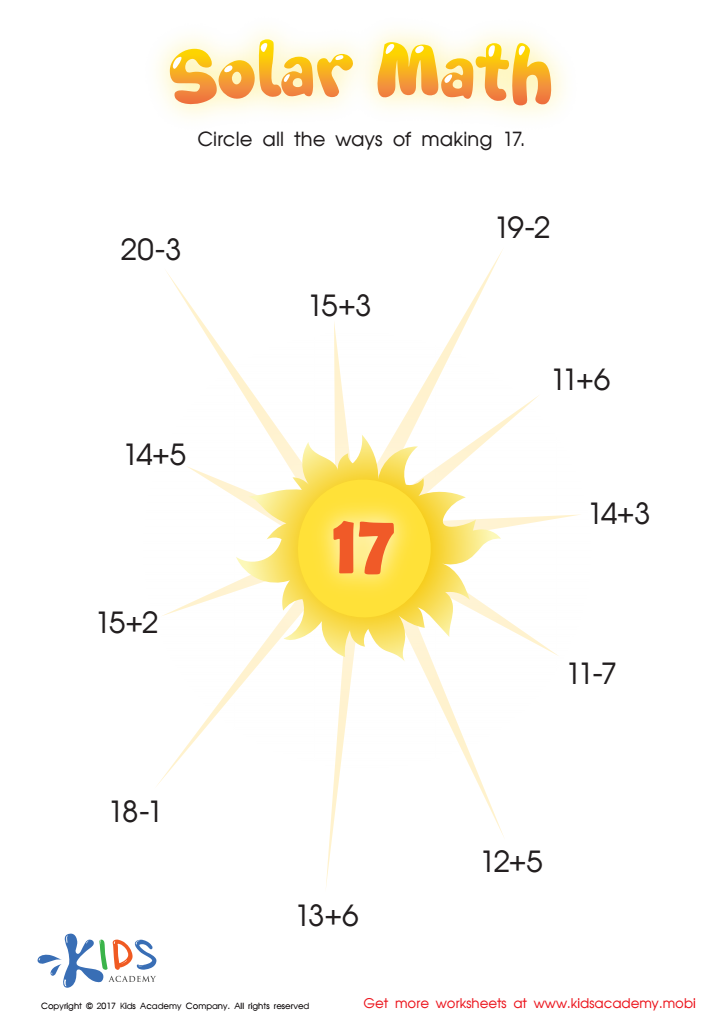Mathematical operations Addition & Subtraction Worksheets for Ages 6-9
6 filtered results
-
From - To
Welcome to our engaging collection of Addition & Subtraction worksheets designed for children ages 6-9! These resources aim to build foundational skills in mathematical operations through fun and interactive activities. Our worksheets offer a range of challenges, from simple problems for beginners to more complex equations. Each activity is crafted to enhance critical thinking while ensuring children develop confidence in their mathematics abilities. Ideal for classroom use or home learning, these worksheets promote independent practice and reinforce essential concepts. Explore our extensive library and empower your child to master addition and subtraction with ease and excitement!


Addition and Subtraction: Equations Worksheet


Two-Step Hiking Problems Worksheet


Two-Step Problems Worksheet


Solar Math Substraction Worksheet


Addition and Subtraction: Word Problems Worksheet
Mathematical operations such as addition and subtraction lay the foundation for a child's understanding of more complex concepts later in life. For children aged 6-9, these basic skills are crucial not only for academic success but also for daily life. By mastering these operations, children develop critical thinking and problem-solving abilities that extend beyond math.
Parents and teachers should prioritize these skills because they promote cognitive development. Learning to add and subtract helps children understand relationships between numbers, enhances their memory, and stimulates logical thinking. These skills are also essential for more advanced topics like multiplication, division, and eventually fractions and decimals.
Moreover, a solid grasp of addition and subtraction boosts children's confidence in their abilities. Conceptual understanding enhances a child's motivation to engage with mathematics, fostering a positive attitude towards learning. Practicing these operations in everyday scenarios, such as shopping or cooking, reinforces their relevance and application in real life, making math tangible and enjoyable.
By focusing on these fundamental skills, parents and teachers empower children to succeed academically and encourage a lifelong love of learning, preparing them for future educational challenges and opportunities.
 Assign to My Students
Assign to My Students

















